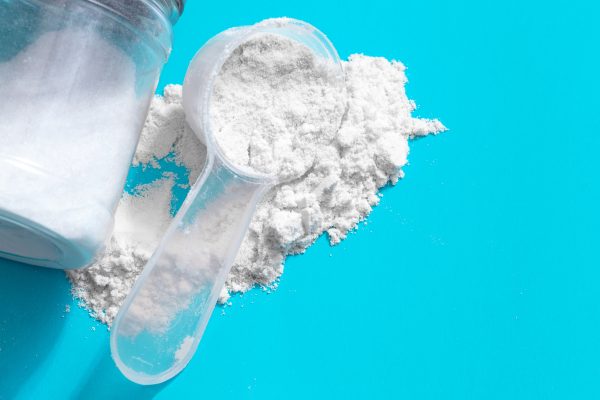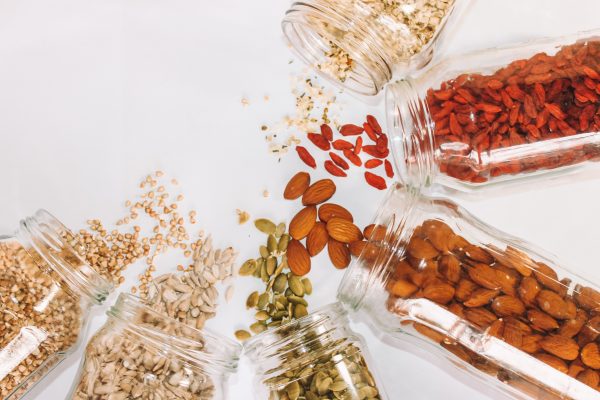Vitamin D is best known for its vital role in bone health, but did you know that Vitamin D is actually a hormone that can regulate many processes within the body, contributing hugely to our overall health and athletic performance?
As the majority of Vitamin D is made in the skin via sunlight, Vitamin D is often referred to as ‘The Sunshine Vitamin’. In fact, 80% of Vitamin D synthesis comes from the sunlight and 20% from dietary intake, therefore during the winter months - when sunlight is limited - a Vitamin D supplement is advised.
Why do athletes need Vitamin D?
Vitamin D is a vital nutrient for overall health as it plays a key role in many physiological functions such as bone health, muscle strength and immune function, plus many other cardiovascular and health measures. Athletes require vitamin D to support their vigorous training demands by aiding recovery and reducing the risk of injury, particularly bone related injuries. Minimising illness is also critical for athletes to maintain their high training volumes, which is supported by Vitamin D’s role in strengthening the immune system and helping to prevent potentially performance-limiting upper respiratory tract infections.
How much Vitamin D should athletes take per day?
When possible, typically in summer months when sunlight hours are longer, everybody (not just athletes) should aim to get 20-30 minutes of good direct sunlight exposure to their face, arms and legs. This will cover any need for a Vitamin D supplement. However we know this is not always possible for many reasons i.e. the time of year, weather, indoor sports, clothing for religious reasons etc. This is where a supplement - like the Nutrition X High Strength Daily Vitamin D3 Tablets - comes in, as we’re unable to get enough Vitamin D through food alone.
Low-dose intakes (400-800IU/day) may be sufficient for the general population and children, but may not be enough to meet the needs of athletes. The European Food Safety Authority advises a safe daily upper limit of 4,000IU, whereas the US Institute of Medicine states a no adverse effect limit of 10,000IU/day. What we do know is that lower doses administered daily may offer the most potent beneficial biological effects, of which 2,000IU is a safe and well supported recommended intake to prevent and correct a deficiency commonly seen during the winter months.
For more accurate guidance on how much vitamin D an athlete should take, it is recommended they get a blood test to measure their current Vitamin D levels first.
What happens if I’m Vitamin D deficient?
Despite Vitamin D being a well-known vitamin for overall wellbeing, Vitamin D deficiencies are very common in the general population, as well as among athletes; particularly during winter thanks to the lack of sunlight. Vitamin D deficiency may go unnoticed by athletes, but could easily contribute to a reduced immune function, poor bone health and potentially perturbed muscle function and regenerative capacity. In addition, research suggests that Vitamin D deficiency has been linked to chronic and inflammatory diseases such as hypertension, arthritis and cardiometabolic disease.
As mentioned, bone health could be compromised as a result of low Vitamin D levels, as it plays an important role in calcium absorption and bone formation. Without it, athletes may experience an increased risk of stress fractures. It is also worth noting that there is emerging evidence that increasing Vitamin D concentration may enhance muscle remodelling following injury.
After injury, infection or illness are the most common issues impacting sports performance for athletes at all levels. Therefore, the maintenance of immune health should be an absolute priority during times of training, with sufficient Vitamin D levels having been proven to reduce the risk of contracting infection by 7%.
What are the signs of a Vitamin D deficiency?
Alongside the above, key signs of a Vitamin D deficiency may include the following:
- Fatigue and poor recovery times
- Low mood
- Bone and muscle weakness/pains
- Recurring injuries
- Regularly getting colds and illness
- Poor sleep quality
How does a Vitamin D deficiency affect athletes?
A Vitamin D deficiency has a negative impact on an athlete’s ability to perform at their best. It can significantly impair recovery times and increase the risk of recurring injuries and illness, potentially resulting in long-term recovery. Vitamin D deficiencies are also linked to suboptimal body composition, which can negatively influence performance and recovery.
What are good food sources of Vitamin D for athletes?
Food sources of Vitamin D include oily fish, egg yolk, liver and dairy products. However, it should be noted that, unless food sources are fortified with Vitamin D (for example breakfast cereals) food sources alone aren’t sufficient to prevent a deficiency without sunlight exposure. A supplement like High Strength Daily Vitamin D3 Tablets is therefore highly recommended during the winter months.
Specific food sources of Vitamin D include:
- Oily fish
- Mushrooms
- Eggs
- Liver
- Dairy products
- Fortified soya products
How do I supplement with Vitamin D?
Growing evidence suggests that a daily dose of Vitamin D3 (2,000IU) - such as that found in our High Strength Daily Vitamin D3 Tablets - has been shown to be the most appropriate recommendation to prevent and correct a deficiency commonly seen during the winter months. This dose is said to be a safe dosage with no risk of toxicity. Athletes who are unsure about their Vitamin D status, or have a history of bone injury or signs of overtraining, should assess their blood Vitamin D status before supplementing to ensure they’re getting the correct dosage.
Can Vitamin D improve athletic performance?
Maintaining optimal vitamin D levels is linked to maximal performance in athletes. There is also good evidence to suggest that correcting vitamin D deficiencies in athletes has a significant improvement on many markers of athletic performance. For example, our very own Professor Graeme Close demonstrated significant improvements in sprint performance, vertical jump height, and muscular strength in athletes, ranging from jockeys to football and rugby league players. Read all about it here: https://www.tandfonline.com/doi/abs/10.1080/02640414.2012.733822
We also have a great in-depth read on Vitamin D through our Nutrition X-Change papers which you can check out here: https://www.nutritionx.co.uk/nutrition-hub/x-change/nutrition-x-change-vitamin-d-the-sunshine-vitamin/








